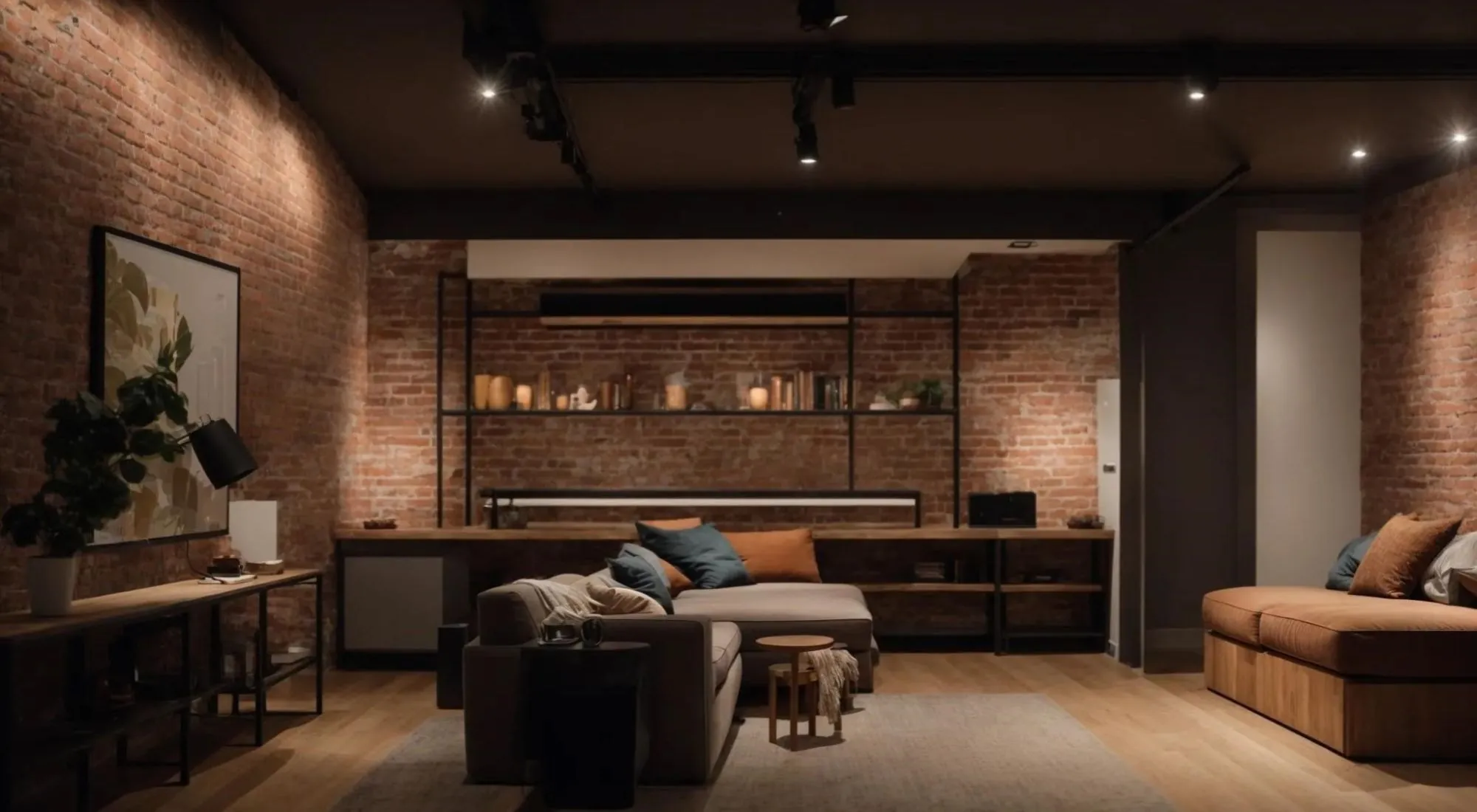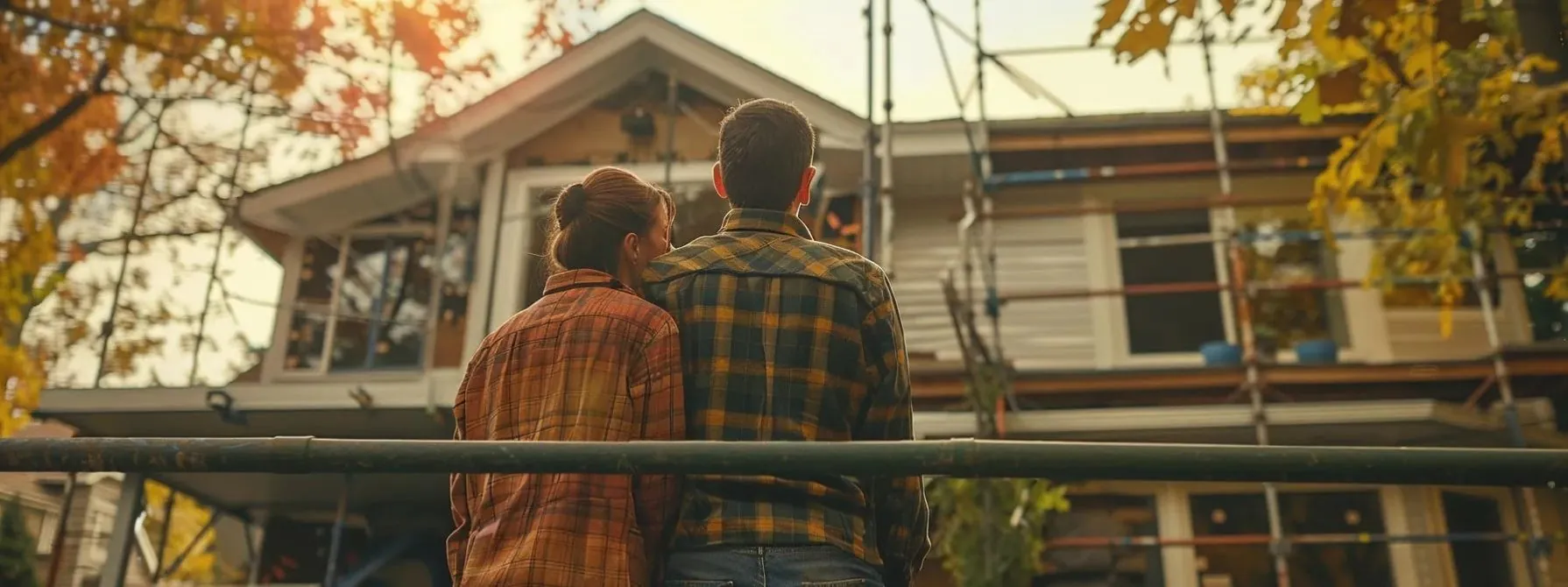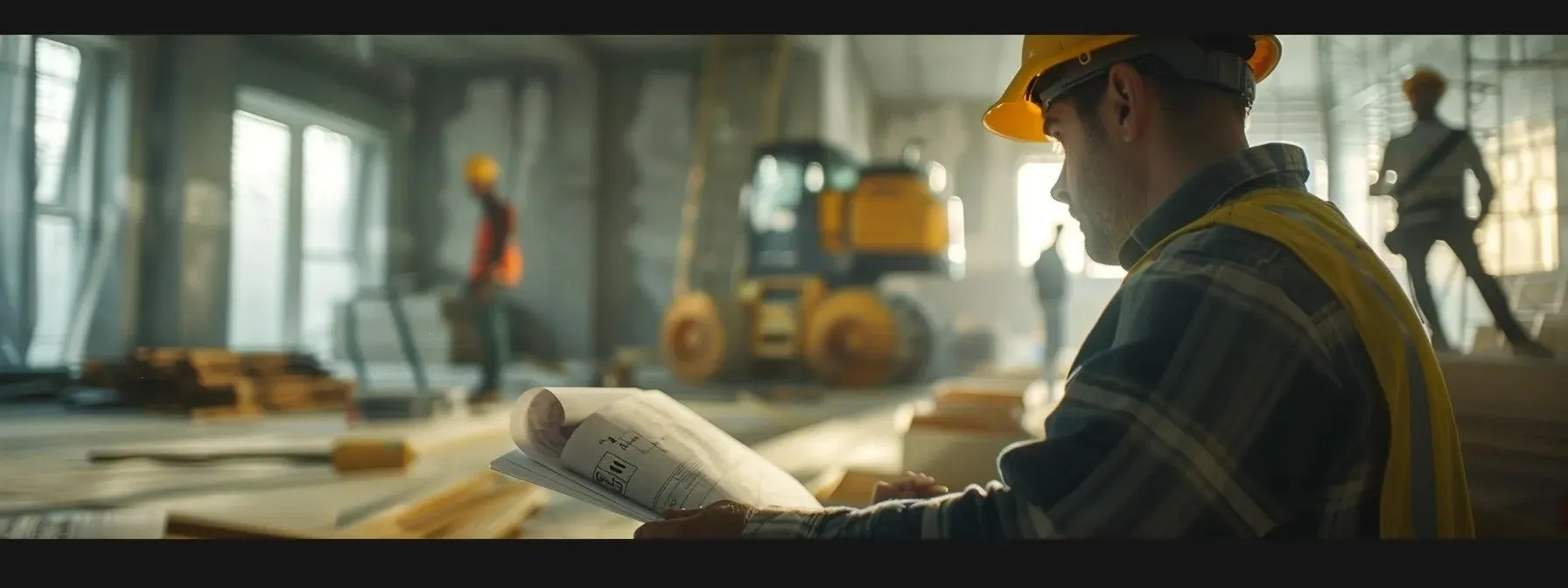Transforming a basement into a functional and inviting space is an exciting project for any homeowner. Still, one common question often arises: “How long does it take to finish a basement?” The answer is not straightforward as it depends on various factors, each playing a crucial role in the renovation’s timeline. From the initial design and planning stages to the actual construction and finishing touches, the duration of your basement project can vary significantly.
In this article, we will delve into the key factors that influence the timeline of a basement finishing project. Whether you are planning to create a home theater, a playroom for your children, or a sophisticated bar and lounge area, understanding these elements will help you set realistic expectations and plan more effectively. We will explore everything from the impact of structural changes and material availability to the influence of regulatory approvals and your choice of contractors.
Factors That Affect Basement Remodeling Timelines
Several critical factors can influence the duration of a basement finishing project. Understanding these can help you plan more effectively and anticipate the possible extent of the undertaking. Below, we explore three major aspects that commonly impact the timeline of basement renovations.

Project Scope and Complexity
The broader and more complex your basement project, the longer it will likely take. Simple cosmetic updates might wrap up in a few weeks, whereas full conversions involving plumbing, electrical, and structural changes can extend for several months. The more detailed and involved the project, the more time it will require for planning, execution, and adjustment.
Permits and Inspections
Obtaining the necessary permits and passing inspections are crucial steps that can significantly affect your project timeline. The process varies widely depending on local regulations and the scope of your project. Delays in obtaining permits or scheduling inspections can pause the work, especially in regions with stringent building codes and high demand for building inspections.
Contractor Availability and Scheduling
Your chosen contractor’s availability can also significantly affect how quickly your basement project progresses. Experienced contractors with good reputations may have busy schedules, so securing their time might require advanced booking. Additionally, the contractor’s efficiency and resource management will influence the overall pace of the project. For more insights on basement renovations, consider reading our guide on how to renovate a basement.
Typical Timeline for Finishing a Basement
The time it takes to finish a basement can vary, but a typical project might span anywhere from 3-8 weeks to a few months. Factors such as the project’s scope, existing conditions, and any unforeseen challenges that arise during the renovation can affect the timeline. Understanding the general phases involved can help set realistic expectations.
General Timeline Breakdown
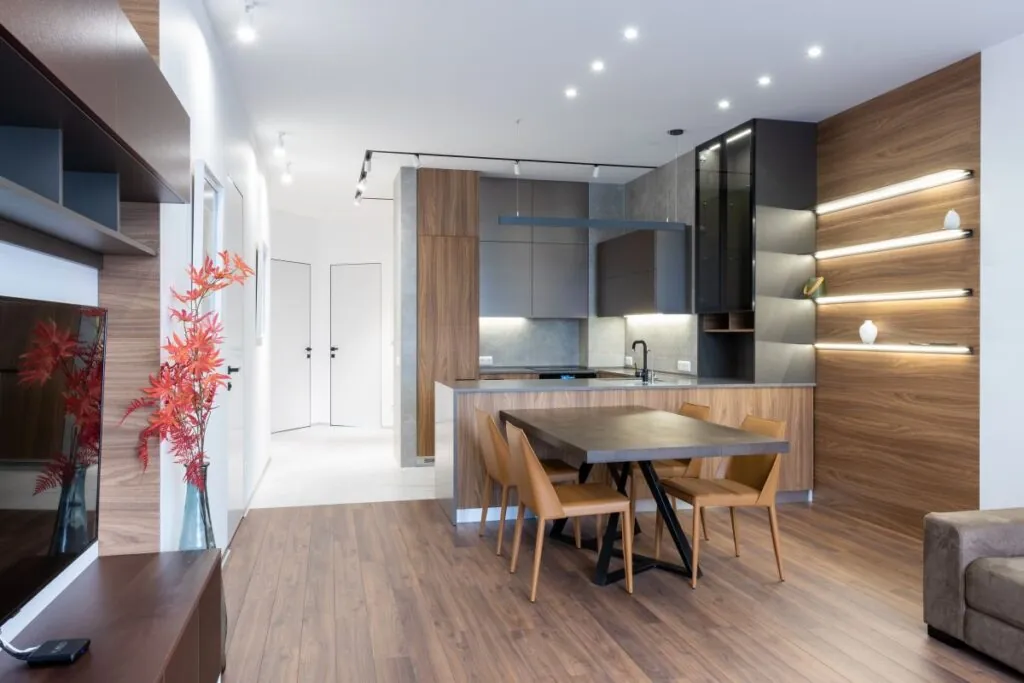
The timeline involved with this kind of work can vary from one job to another. It is important to remain flexible and to work with your contractor to find the approximate timeline for your project. However, here is a breakdown of what you might expect during each phase of the basement finishing process:
Pre-construction phase: 1-3 weeks for planning and permits.
The pre-construction phase is crucial as it involves detailed planning and securing necessary permits. This stage sets the foundation for a smooth project, involving tasks such as finalizing designs, choosing materials, and navigating local building regulations. Delays can occur if adjustments to plans are needed or if permit approvals are held up, which are often contingent on the specific requirements of local building departments.
Construction phase: 4-12 weeks based on complexity.
The construction phase is where the bulk of the work happens, transforming your basement from a bare space into the room you envision. Depending on the project’s complexity, this phase can last anywhere from a month to three months. Activities during this stage include framing, plumbing, electrical work, drywall, and flooring. The timeline can be extended if custom elements are involved or if there are delays in material deliveries or manpower.
Post-construction phase: 1-2 weeks for final touches and inspection.
Once construction is completed, the post-construction phase begins, focusing on finishing touches such as painting, installing fixtures, and final clean-up. This phase also includes necessary inspections to ensure all work meets local building codes and standards. Any issues identified during inspections may require quick fixes to comply with regulations, slightly extending the timeline before the project is officially complete.
Common Delays and How to Avoid Them
Certain unforeseen circumstances can lead to delays in any basement finishing project. Awareness of these common setbacks and planning accordingly can help keep your project on track and minimize disruptions.
Weather Conditions (for foundation work)
Weather can significantly impact foundation work, particularly if your basement remodel includes external modifications or new construction. Wet conditions can halt excavation and concrete pouring. To mitigate these delays, schedule such work during drier months and always have a backup plan to accommodate weather shifts, ensuring continuous progress on other aspects of the project.
Supply Chain Issues and Material Delays
Recent global events have highlighted vulnerabilities in the supply chain, affecting the availability of construction materials. Such delays can unexpectedly stall your basement project. To avoid this, order materials well in advance and consider alternative options that can be easily obtained. Staying flexible with your material choices and maintaining open communication with suppliers and contractors about expected delivery times can also help manage and adjust project timelines effectively.
Renovation Tips for a Functional and Beautiful Basement
Transforming your basement into a functional and aesthetically pleasing space requires thoughtful planning and design. Here are essential tips to ensure your basement renovation is both beautiful and practical, maximizing its potential as a valuable part of your home.
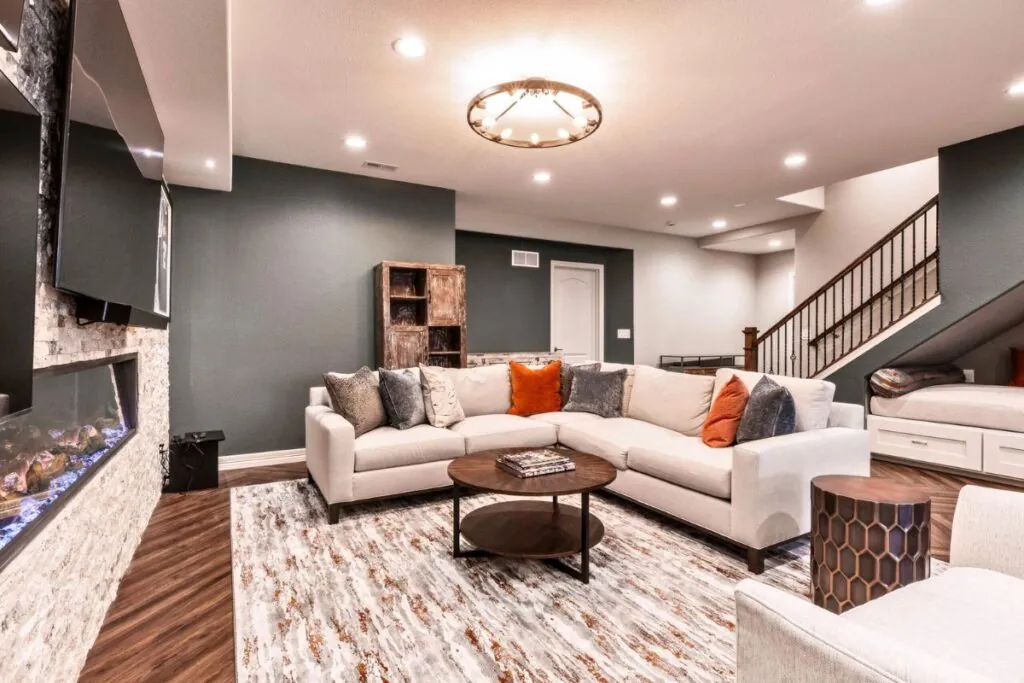
Choosing the Right Materials
Select durable materials suitable for basement conditions. Opt for moisture-resistant options like vinyl or ceramic flooring over traditional hardwoods to avoid warping and mold. Wall materials should also support a healthy indoor climate, with mold-resistant drywall and insulation products designed for below-grade spaces.
Enhancing Lighting and Ventilation
Basements often lack natural light and proper ventilation, which can make them feel cramped and musty. To counter this, incorporate ample lighting through recessed lights, wall sconces, and floor lamps to create a warm and inviting atmosphere. Ensure adequate ventilation to improve air quality and prevent moisture buildup, crucial for maintaining a healthy living environment. Consider adding egress windows or vent fans as part of your renovation plan.
Multi-Purpose Basement Design Ideas
Design your basement to serve multiple purposes by incorporating flexible, modular furniture and adjustable lighting. Create zones for different activities, such as a home office, a workout area, or a media room. Use room dividers or open shelving units to define spaces without closing them off, maintaining an open, adaptable layout that can change as your needs evolve.
Start Your Basement Renovation Journey Today!
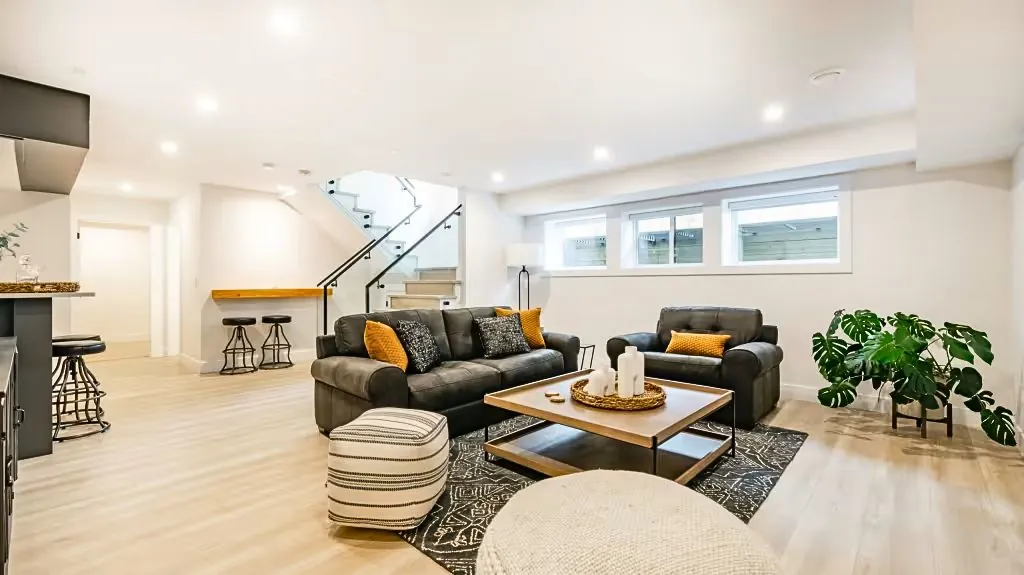
Finishing a basement is a rewarding project that enhances the livability of your home and increases its market value. Understanding the factors influencing the timeline, from the project’s complexity to external elements like weather and material availability, is crucial for a smooth renovation process. By preparing for common delays and applying strategic renovation tips, you can effectively minimize frustrations and ensure a successful completion.
Whether you want to create a cozy family room, a functional home office, or an entertainment hub, starting your basement renovation today can open up a world of possibilities. Remember, each step you take in planning and execution brings you closer to realizing the full potential of your basement. So, gather your ideas, set a realistic timeline, and make your basement renovation dreams a reality. With the right approach, your new basement will soon become a cherished part of your home where many lasting memories will be made.
Frequently Ask Questions on Basement Renovation Timeline
How long does it take for a contractor to finish a basement?
The time required for a contractor to finish a basement typically ranges from 6 weeks to 4 months, depending on the complexity of the project. Simple cosmetic updates may take a few weeks, while projects involving structural changes, plumbing, and electrical work can take significantly longer.
What is the hardest part of finishing a basement?
The hardest part is often navigating permits and inspections. Securing the necessary approvals and adhering to local building codes can be time-consuming and requires meticulous planning. Other challenging aspects include addressing moisture control and optimizing ventilation in a below-grade environment.
What takes the longest when finishing a basement?
The construction phase generally takes the longest, lasting between 4 to 12 weeks based on the scope of work. Tasks like framing, plumbing, electrical installation, drywall, and flooring contribute significantly to the overall timeline. Delays in material delivery or contractor availability can also extend this phase.
What is the most expensive part of finishing a basement?
The most expensive components of finishing a basement are usually plumbing and electrical work, especially if new systems need to be installed. Custom features, such as built-in bars, home theaters, or specialized flooring, can also add significant costs to the project.
Do finished basements add value to a house?
Yes, finished basements can significantly increase a home’s market value by adding functional living space. A well-finished basement can also appeal to potential buyers and offer a strong return on investment, especially when designed with popular features like home offices, playrooms, or entertainment areas.

